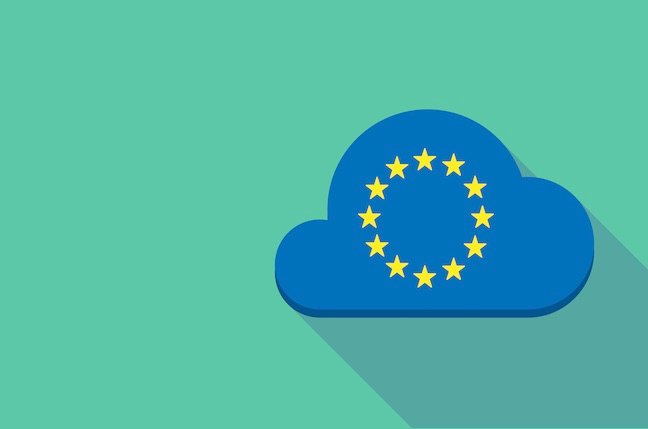Aganist the backdrop of the new European Chips Act, digital sovereignty is on the menu once more with a conference on the topic taking place last week in the European Union.
But critics in the form of local cloud players seem unconvinced, with several members of the European Cloud Industrial Alliance (EUCLIDIA) saying in an open letter last week that “instead of giving the floor to innovative European businesses challenging the status quo, the organizers are rolling out the red carpet to non-EU players who have been repeatedly abusing their position of dominance.”
Tucked away between ministerial meetings concerning agriculture and health, the two-day talking shop was all about how the bloc might build up technological prowess to compete with global tech giants.
Hosted by France, current holders of the presidency of the European Council of Ministers, the topic has a particular significance for Eurocrats worried about their citizens’ privacy. “Security, innovation, regulation and values, and openness” are the four pillars underpinning European digital sovereignty, according to the conference’s aims.
For the sake of argument, we’ll take “values” as meaning dodging the interpretation of the US authorities (and the hold the EU fears they have over the tech giants) in favour of Europe’s take on the matter.
It’s an interesting moment. France is not averse to the odd dalliance with big US cloud companies. In 2021 it suggested that technology could be licensed from Microsoft and Google as part of “trustworthy cloud” strategy, with French companies running things on French servers. Not quite the homegrown alternative dreamt of by other European politicians.
Local cloud players such as Scaleway were left somewhat disgruntled as time went on. In October Yann Lechelle, CEO of Scaleway, complained of “contradictory messages.”
Scaleway went on to quit the EU’s data sovereignty project, Gaia-X, in November. Lechelle expressed concern that the project was “only reinforcing the status quo” and noted the preference of some nations to continue working with the US tech companies.
Scaleway is also a member of the industry cloud alliance of majority-owned European-based firms.
EUCLIDIA also includes such luminaries as Frank Karlitschek, CEO of Nextcloud. The self-hosted productivity platform is notable for firing an EU antitrust complaint at Microsoft over the bundling of OneDrive with Windows.
In a 3 February statement, members of the alliance said they were of the opinion that there was no need to rebuild digital sovereignty from scratch, that Europe “has a strong technological heritage.”
The members cited cloud technologies (containers, aggregation of information feeds, cloud services app store, database orchestration) that it reckons were invented in the region, as well as “a vibrant ecosystem of SMEs that have been, intelligently and determinedly, fighting for two decades to remain competitive in markets over-dominated by a handful of American stakeholders, in questionable, contested competition.”
As evidenced by the announcement earlier this month that the EU was considering relaxing its own state aid rules, designed to prevent unfair subsidies by EU countries harming competition, to facilitate new chip fabrication facilities as part of the Chips Act, some movements towards bolstering certain strategic sectors can be made.
This seems to be what the EUCLIDIA cloud crowd are asking for, stating that a “Buy European Tech Act” would help them benefit from the same “generous – and enviable – US public support and funding from the American Department of Defence” it believes American stakeholders are given in the US public sector.
The group called for decision-makers to pay heed to local tech companies. “Without this proactive support to conquer new markets, and without a clear demonstration of trust, it will be impossible for the European cloud industry to compete on equal terms with its competitors,” it said. “Digital Europe will be powerless, dependent, and witness to de-industrialisation.”
Earlier this week, The European Data Protection Board took its first coordinated enforcement action with an investigation into the use of cloud-based services by the public sector. Speaking about that action specifically, Scaleway CEO Lechelle opined at the time: “Modern cloud computing …disrupts the old model in terms of distribution and acceleration [and] deprives clients of the ownership and sovereignty that they used to enjoy in the older licensing model.”
We have asked Microsoft and AWS for comment. ®
Source link



